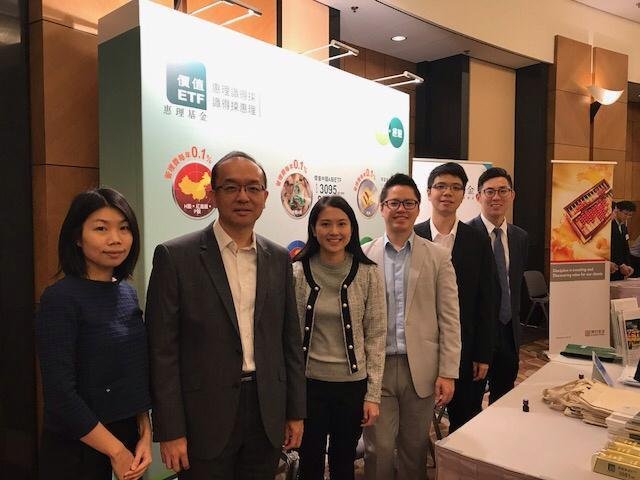The growth of Hong Kong-based ETF provider Value Partners shows how gold ETPs are picking up in Asia. It also offers promise of white labelling into Hong Kong for western companies, Felix Xu writes.
Value Partners recorded AUM growth of 23% for its ETFs this year thanks to the strong uptake of its flagship gold product.
And in what may be a sign of where the industry is heading, the Hong Kong-based asset manager has signaled its intent to team up with western ETF companies and offer white labelling services into Singapore and Hong Kong.
Established in 1993, Value Partners initially made its mark with its value and fundamental investing strategies. The company then made its foray into passive investment universe with the launch of its first ETF, Value China ETF, in 2009.
Currently, Value Partners has six ETPs including Value China A-share ETF, Value Korea ETF, and Value Gold ETF, running the gamut from equities to commodities.
In August, the company restructured its passive and quant businesses by combining its ETF, smart strategy and big data businesses under the new quantitative investment solutions (QIS) team.
The consolidation aims to redeploy its resources and salesforces in a more effective way.
Meanwhile, the company has hired veteran ETF manager David Quah from rival Mirae Asset Global Investments as co-managing director of the QIS team.
Mr Quah and Mak Ling Kai, co-managing director of QIS and senior fund manager of Value Partners, jointly lead the new department.
In terms of performance, Value Partners' ETF and smart strategies have grown significantly in 2017.
The AUM for its ETFs, smart strategies, and big data posted a growth of 65% January-to-November, to reach US$290 million as at December 1.
The company's ETF AUM grew 23% year-to-date to reach US$159.5 million year to as of December 1, while smart strategy for its Mandatory Provident Fund (MPF) and Undertakings for the Collective Investment of Transferable Securities (UCITS) products gained 242% to $118 million.
The company's big data business recorded a growth of 5% over the same period to $12.5 million as at December 1, he adds.
Among the company's six ETF products, Value Gold ETF was the best performer in the first 11 months this year with a growth of almost 30% in AUM.
The AUM surge suggests that Asian investors - like their European and North American counterparts - prefer the simplicity and ease of gold ETFs to the considerable storage and security costs that come with buying gold bullion.
The last ETF launched by Value Partners was Value China A-share ETF in March 2015, which tracks the FTSE Value-Stocks China A-Share Index.
Although Value Partners has not rolled out any new ETF product in recent years, the company will prioritise to form partnerships with other ETF managers and advisors rather than developing its own ETF products, Mr Quah points out.
Value Partners does not set a hard target for new ETF products and their income contribution to the group. Instead, it is exploring various partnership opportunities such as co-branding, he says.
He adds that white labelling - where Value Partners lends out its management and advisory to help other companies list ETFs - is also an option going forward. The company is particularly interested in providing US and European fund managers white labelling services in Singapore and Hong Kong, providing foreign companies an easy gateway into the Asian ETF market.
They company's Singaporean subsidiary is among only a handful of Singaporean fund houses with a retail licence covering all products including ETFs. Its capability and infrastructure will help foreign ETF managers enter Asia, Mr Quah says.
On market trends, Mr Quah says the Hong Kong ETF market still has room for growth, despite the fact there have been at least 36 new ETPs listed in the territory this year.
"Smart beta will be one of the future trends," Mr Quah says, adding that ETF players need to pursue sufficient feasibility studies before launching their products.
Given that the Hong Kong Stock Exchange and Shenzhen Stock Exchange have not finalised the launch date for the ETF Connect programme due to technical issues, some ETF managers in Hong Kong prefer to sit on the sideline until the programme goes live, Mr Quah notes, adding that the cross-border access is expected to be the major impetus for local ETF market in terms of boosting market liquidity.
The ETF Connect programme, which was unveiled in August 2016, will enable Hong Kong investors to trade Shenzhen-listed ETFs and allow Mainland investors to access Hong Kong ETFs.



